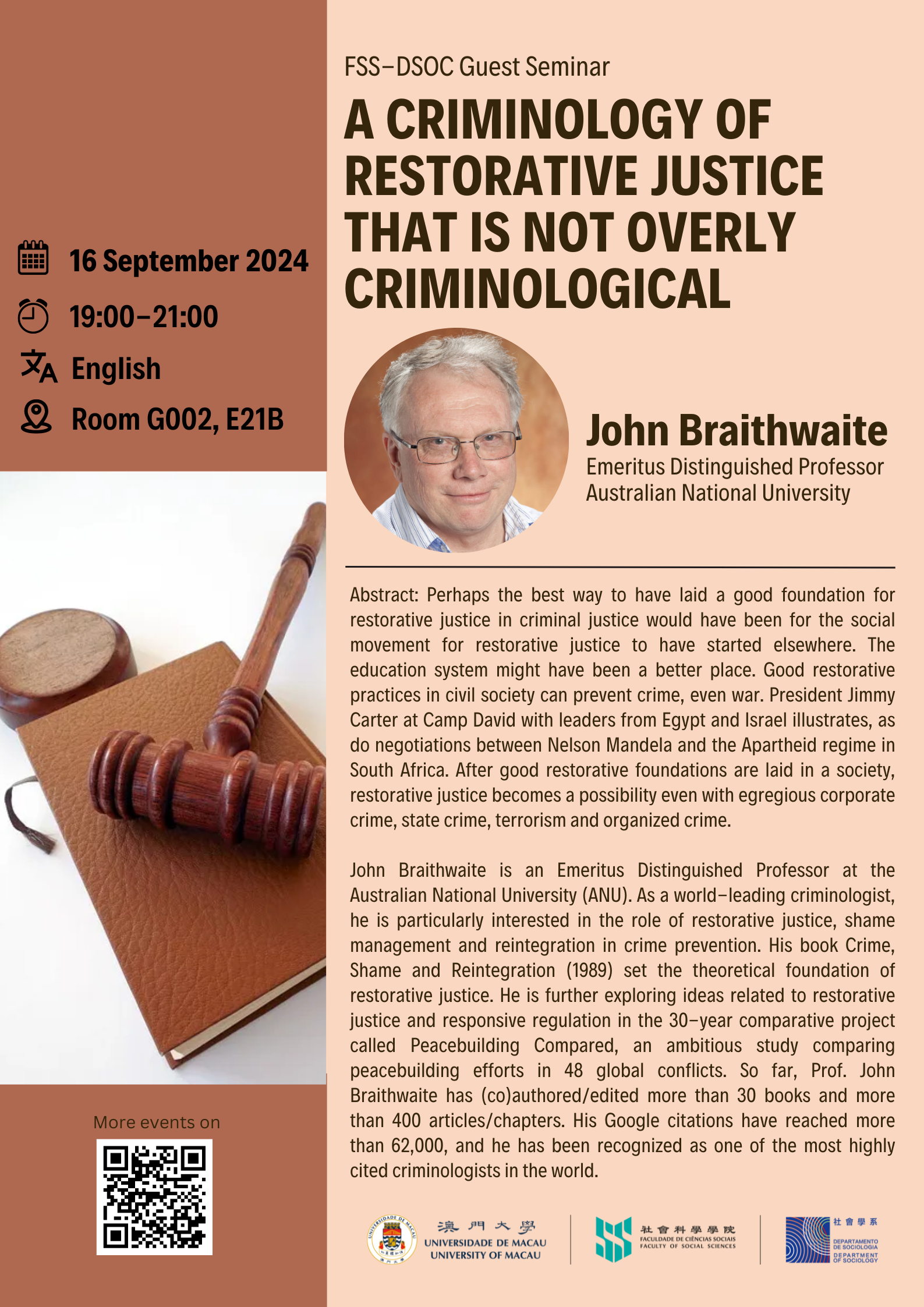
Date: September 16
Time: 7:00 pm – 9:00 pm
Speaker: Prof. John Braithwaite
Venue: E21B-G002
Organizer: Department of Sociology
Phone: 8822 4595
Perhaps the best way to have laid a good foundation for restorative justice in criminal justice would have been for the social movement for restorative justice to have started elsewhere. The education system might have been a better place. Good restorative practices in civil society can prevent crime, even war. President Jimmy Carter at Camp David with leaders from Egypt and Israel illustrates, as do negotiations between Nelson Mandela and the Apartheid regime in South Africa. After good restorative foundations are laid in a society, restorative justice becomes a possibility even with egregious corporate crime, state crime, terrorism and organized crime.
John Braithwaite is an Emeritus Distinguished Professor at the Australian National University (ANU). As a world-leading criminologist, he is particularly interested in the role of restorative justice, shame management and reintegration in crime prevention. His book Crime, Shame and Reintegration (1989) set the theoretical foundation of restorative justice. He is further exploring ideas related to restorative justice and responsive regulation in the 30-year comparative project called Peacebuilding Compared, an ambitious study comparing peacebuilding efforts in 48 global conflicts. So far, Prof. John Braithwaite has (co)authored/edited more than 30 books and more than 400 articles/chapters. His Google citations have reached more than 62,000, and he has been recognized as one of the most highly cited criminologists in the world.

